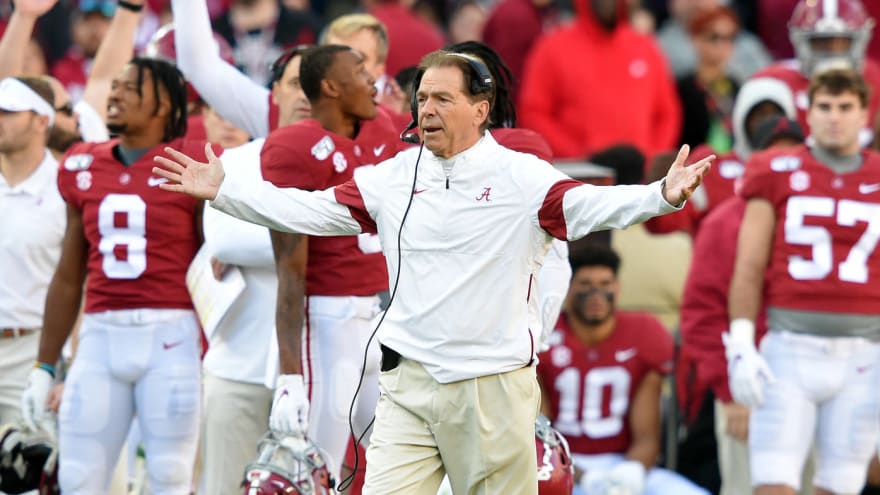Amid the first blurry hours of the new decade, Michigan will face Alabama in the Citrus Bowl. Before the season began, many of us would not have been surprised if this were one of the two College Football Playoff games, a matchup between the program with the most wins in college football history and the most dominant program of the past decade.
But this … is not that. It is, instead, a second-tier amusement in the shadow of Disney World — a game between teams that slogged through seasons that would have been quite respectable if only the expectations hadn’t been so high. For Alabama fans spoiled by their team’s success under Nick Saban, a 10-2 season is a “ train wreck”; for Michigan fans yearning for a win over Ohio State, a 9-3 season is a total letdown. And now, instead of being defined by its rich history, this Citrus Bowl will likely be characterized by how it embodies college football’s future: an era where players seem more and more likely to skip games that are essentially meaningless.
This especially holds true for the Crimson Tide, with a roster loaded full of NFL prospects, including pretty much its entire receiving corps. It is now conventional wisdom that there is absolutely no reason for anyone with a potential NFL future to risk their health in a bowl, meaning a mass of Alabama players, along with a handful of Michigan players, could wind up sitting out this game.
I get it.
I think athletes should be able to profit off their names and likenesses, and I’d like to see a reasonable path toward further compensation. That’s obviously the debate that’s going to frame the future of college sports heading into the 2020s. By the time we awake on New Year’s morning, dry-mouthed and full of regret, for the 2030 Citrus Bowl, I imagine college sports will look completely different than they do today. I’m not entirely confident, though, that the Citrus Bowl will exist in its current form by then.
Here’s the thing about college football: It was long defined by its lack of resolution. There was no official national championship game for most of its history; there was often no good way of determining a national champion at all except for the media to make its best guess and vote. That allowed the bowl system to continue to exist. And while it was weird and corrupt and sponsored by Poulan Weed-Eaters and run by aging men in garish sport coats, it also gave meaning to so many otherwise forgotten seasons. You went 7-5? Well, at least you get a Liberty Bowl bid as a reward.
It was a delusion, I know, because the vast majority of college football games — hell, the vast majority of competitions in pretty much every sport — don’t really mean anything. But now that the Playoff exists, it’s presented the notion that the sport’s framework was, well, weird and corrupt. That’s good, because players can finally break through the illusion of amateurism and push toward getting paid. It could also be bad, though, because the focus on the endgame could cheapen all the ritual that made college football unique in the first place.
Don’t believe me? It’s already happened in college basketball. The season now feels like an overlong slog leading into the NCAA Tournament, where one-and-done players have essentially turned the upper echelon of the sport into something that feels just as slimily transactional as it did when envelopes full of cash were being shipped via overnight mail in the 1980s.
Now, maybe you think that trade-off is worth it if it pushes college sports into a more equitable future for all those players who will sit out the Citrus Bowl. And for now, the television ratings and revenue for bowls are still oddly strong, mostly because there are those of us who will watch any college football game dangled in front of us.
But maybe we’re in a “bowl bubble.” This next decade is going to raise all sorts of questions about the future of the sport, and by the time it’s over, we may no longer be arguing about whether all these great players should be sitting out all these “meaningless” bowls. We may be asking: Why are we playing these meaningless games in the first place?
By: Michael Weinreb




